Spotlight on Younes Mohammad
Feb 12, 2017
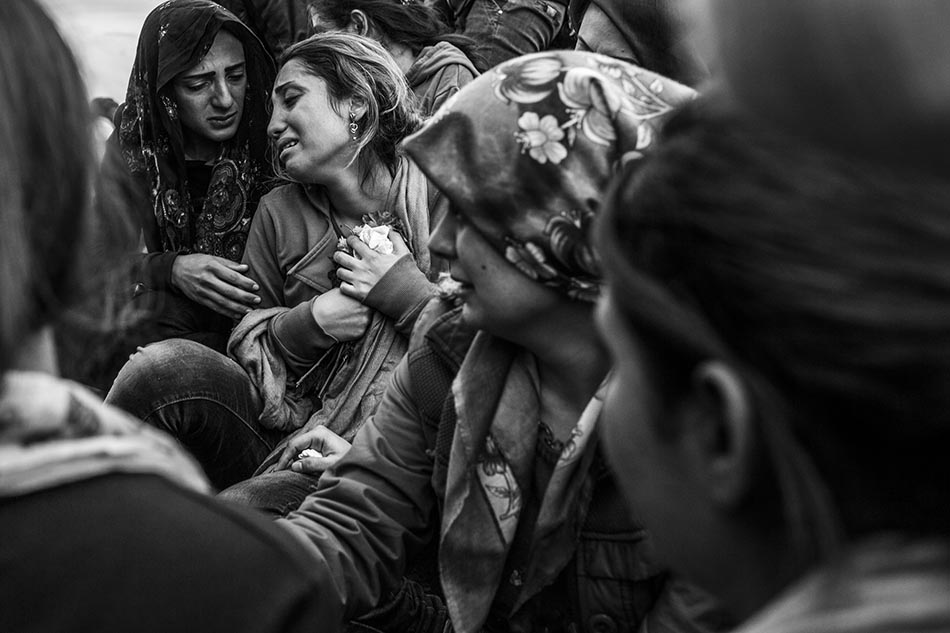
EDITOR’S NOTE:
The following interview is taken from a Skype interview with Younes, who is living in Erbil, Iraq. Instead of a normal framework about deconstructing an image, we discussed more about what it’s like for him documenting a conflict in his region. It’s edited for some for clarity.
TID:
Thank you, it’s so nice to meet you. I’ve admired your work, and I really appreciate your time.
YOUNES:
I thank you very much for asking me. We, as local photographers - we are doing our best, and sometimes it feels like people don’t care about what we’re doing. When you first asked I was surprised - thank you.
TID:
I know it has to be difficult for you, and I can’t even pretend to know what it’s like to have gone through what you have. Before we talk more about this, can you talk about the backstory of the lead image. It’s very intense.
YOUNES:
I was on the way to cover the war against ISIS in the Kurdish area of Syria. While we were on the way, we saw that there was a funeral and I decided to stay there. I was there with John Moore. We decided to remain there and follow the funeral. The started to bring the bodies of the guys who were murdered. So, this is the moment that they left the grave – it was taken in the cemetery.
That picture was of the moment, the last second actually, that a sister was saying goodbye to her brother. It was the same day that, or maybe it was the day before, that there was a car suicide explosion by ISIS. She lost her brother, and two or three other Kurdish fighters in the bomb.
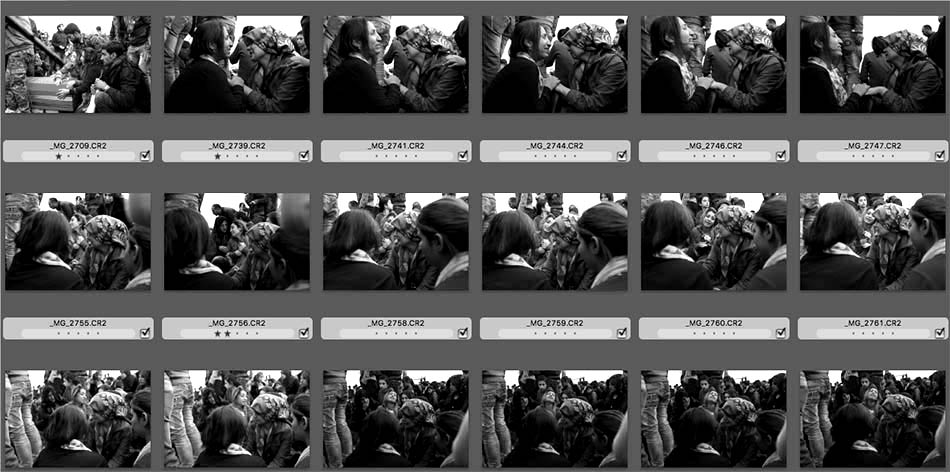
TID:
I read that you were born in Iraq but lived in Iran as a refugee, what has it been like for you to return to Iraq to document the war?
YOUNES:
Ross, it’s like I’m documenting my life again. It’s almost like when I was a kid – I was a refugee. I saw a lot of bad moments. It was a very difficult time for me, especially my mother. When I started photographing, most of the time, I feel like I’m documenting the life I led. It’s my life, it’s my past. I have a chance to see and document that.
I bought a camera in 2011 and started photographing in 2012, and the first year I had no idea how to use the camera, which kind of photography I would do. After six months, I found I like it – I liked working in the documentary field. I put all of my time into this now.
TID:
Why do you spend time doing this? It’s very difficult and dangerous.
YOUNES:
Honestly, Ross. I didn’t start out like this. We as a nation – we had a tough history. A lot of bad things have happened, genocide, etc. Because we are Kurdish, we had a chemical attack against us. There was a lot of pictures in this that gave evidence and brought it to life.
From one side this is good (that there was documentation of the atrocity), but the other side is that there is no local photographer angle. I thought that someone must do this from a local angle. When another photographer from another country comes to our country, they don’t know where they are. The don’t have enough information about the culture, etc.
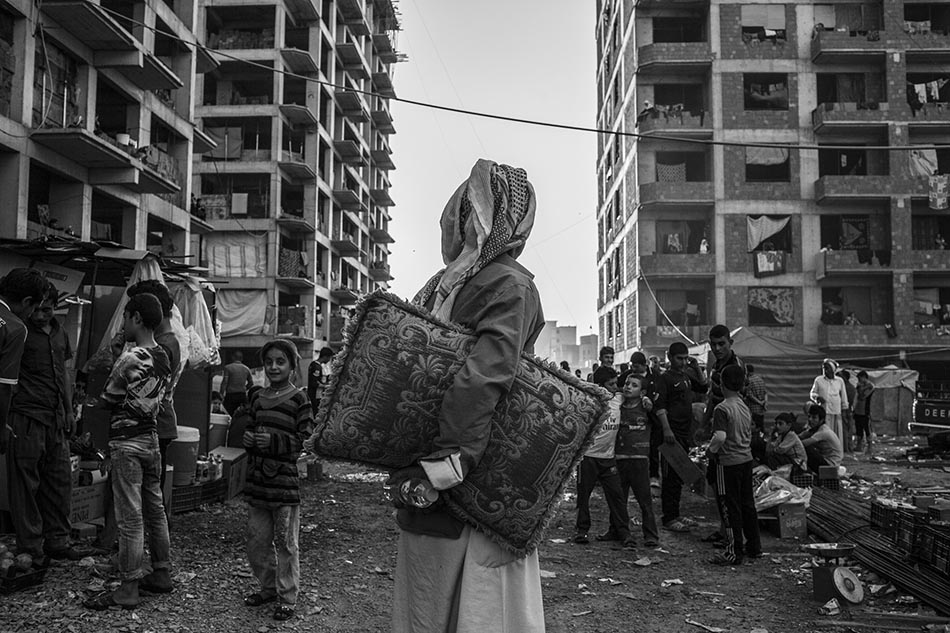
I thought it was our responsibility to document our life, to do something. When I started, I just wanted to document Kurdish life, and then, the conflict came to me. I didn't chose to document conflict, conflict just came to me. When I saw the refugees, I decided I must go there to understand why.
I found out that now I am in the middle of a conflict. Then ISIS came to our area as well. I had no idea starting out that I would be a war, or a conflict, photographer. I just decided to document Kurdish life first, but the conflict came to us. Suddenly, I find myself in this.
TID:
I know it’s an intense situation. How do you handle this emotionally?
YOUNES:
Honestly, it’s not easy. Because the people you’re photographing - you know them, you feel them. They’re talking your language; they have the same background as you have. A lot of time I can’t photograph, I just sit with them and cry with them.
I try to do my responsibility. My first responsibility is to document the situation. Sometimes it’s too hard, sometimes it’s too emotional. For example, sometimes I meet people that lose everything, they’ve lost everyone. I try to respect them, to understand them and then I also try to do my responsibility as a photographer – to document this. It’s not easy. It’s not easy.
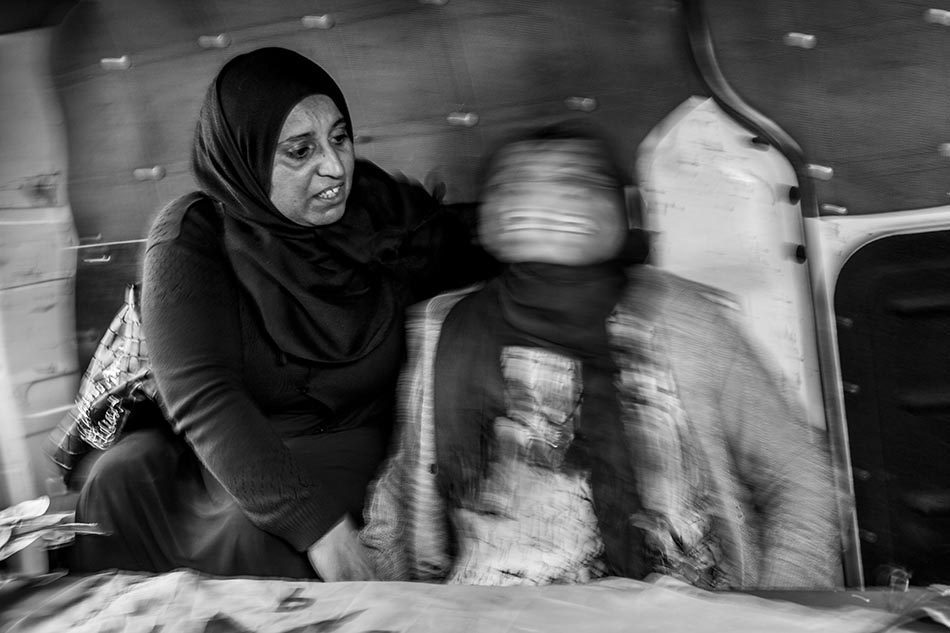
TID:
You work through situations that are difficult all the time. How do you work through them?
YOUNES:
If am an American photographer, from France or Germany it’s a little easier in some ways – many people will accept you, but when they look at me as a local photographer, it’s not easy for us. It can be harder to for us to get access. But step by step, I found out how I must make these trusts between people – how I must do this. I explain a lot how that I can do the same a foreign photographer can do, but that I am doing it from a Kurdish point of view.
The main problem I have as, not as a photographer, but a human. When you are directly in touch with people that are in pain, or when they lose someone, the main thing problem I have is – I try to make respect them I try to trust with them. I try to make a connection with them to tell them I understand you, I respect you. Other things are easy: getting information, passing through checkpoints, going to dangerous areas – this is easier. This is just physical. It’s something that after a period of time you will learn how to solve it.
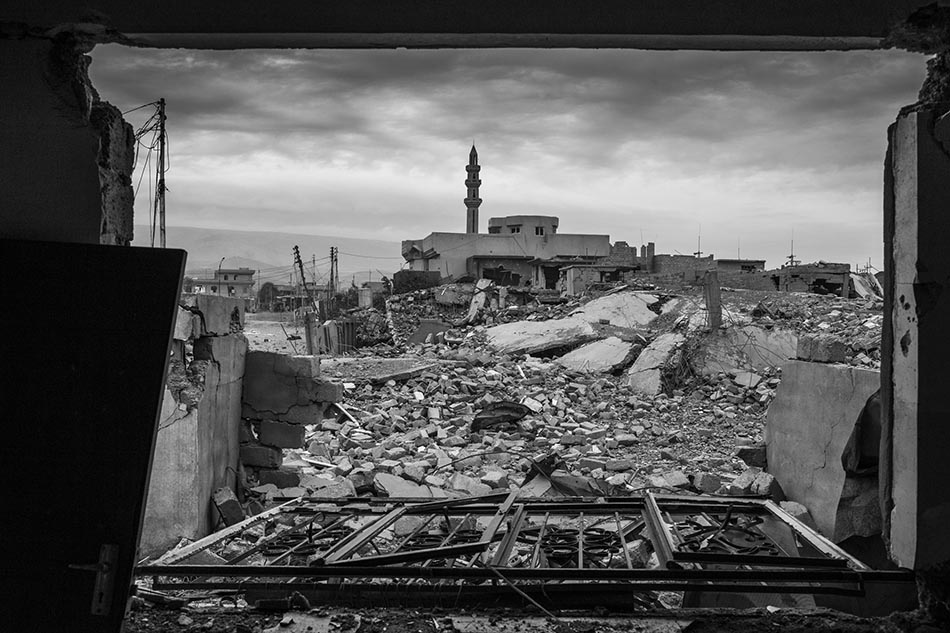
But making a connection with people who are living in a conflict area or in a bad situation - this is always difficult. I always try to show myself as part of the family. If you lose someone, I lose someone as well. If you lose a relative, I lose one as well. The main problem is, which I can’t solve is internationally. I am doing the same job as other photographers who are coming to my area - but internationally nobody is respecting us (they don’t pay the same rate).
For example, some months ago there is a newspaper in the states that was asking for photographs – when they see the pictures they’re willing to pay $500 for the picture. But when they found out this picture belongs to me they said so sorry we can’t pay more than 50 dollars. They’re not paying the same as other photographers. This is a problem I don’t know how solve, I can’t solve this problem.
TID:
I know this is frustrating for you (and others in your situation). I wish it was different, especially with the difficulty you face to make these images.
Younes, how do you keep safe? You have been in some very dangerous situations.
YOUNES:
You must take care of yourself, about the people around you – the fighters, you must not make any problems for them as well. I went to a trauma training course, and also I started being a fixer. I spent a lot of time as a fixer, which gave me a lot of experience with other photojournalists. This helps give me more skills how I must handle these types of situations.
I learned how I must take care of myself and those around me.
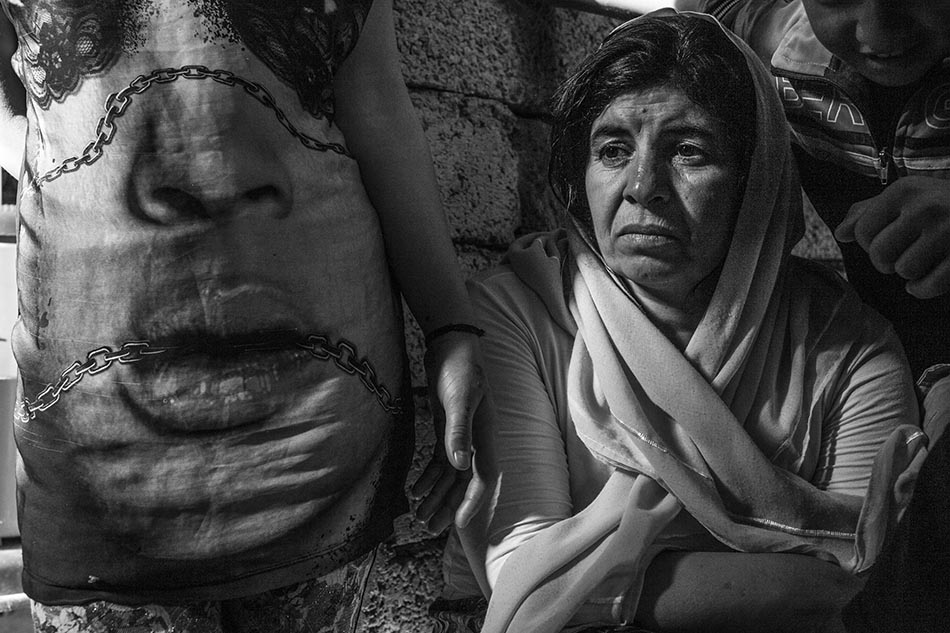
TID:
What advice do you have for photographers who want to do this type of work, especially from your perspective of living inside a conflict.
YOUNES:
One of the big mistakes especially the young photographers make, they’re thinking if I become a war photographer, I will become famous - which is wrong. If you have any idea, if you can do something with your idea – start working. But if you don’t have any idea with the reality, please stay at home. When I was in the Mosul offensive, I saw this. It was a big mistake. When there is no plan for the future for the city, there is no agreement with the different parties – it’s like a suicide.
It’s not fun, it’s not fun just going there and taking pictures. It’s playing with your life and the life of those around you. Please, if you have enough knowledge about the situation, if you now what you’re doing if you have all of this – then ok. But if you don’t, please don’t – just stay in your city. I find a lot of foreign photojournalists who are in a conflict zone and they’re just in it for themselves.
Photojournalism is not that. It’s not about you, it’s not about making a name for yourself. There’s a lot of photographers like this in conflicts everywhere.
The picture is important; the situation is important – not the person. I want to tell them please don’t play with your life. Doing something that you can’t handle. Being in conflict you need a lot of experience. You need to move step by step. It takes time, years. For example, there was an American photographer. He told me I want to be in a conflict zone, he said please bring me there. I tried to tell him it’s not fun. He said no, you’re going there everday and everything is ok. I tried to take care of him, and he came with me to the front line.
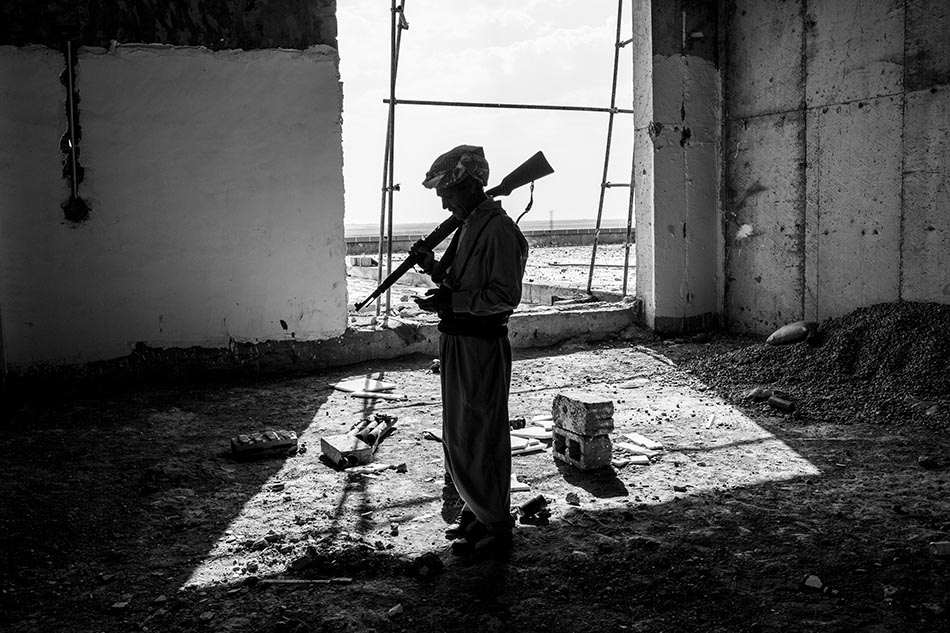
In the first front line he went to he got injured and lost two cameras. He got sent back to the states. He had surgery on his leg.
This is a high risk.
TID:
I’m so sorry you have to go through this.
YOUNES:
It’s not easy. I’m a photographer. I’m a fixer. I’m a translator. Sometimes when you’re working with a professional, it’s an honor. When I work with someone who isn’t experienced, I try to tell them please – this kind of front line is dangerous.
The front line is not a zoo. A lot photographers make the mistake, they’re thinking this is a zoo, we must go to the front line and make a picture. No, this is not a zoo, these are real people this is a real front line. It’s a real war.
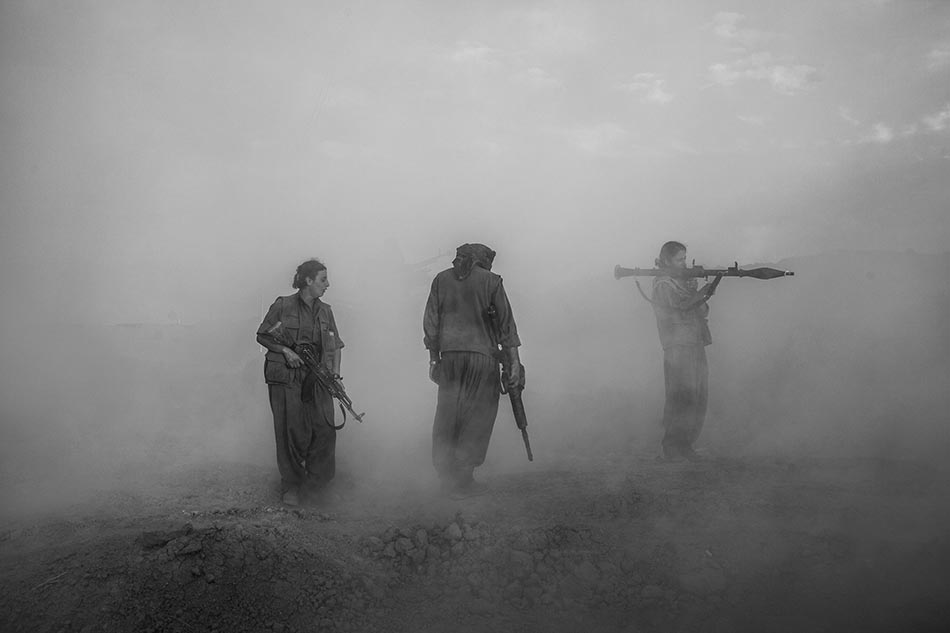
There are some people you must respect, there are some you have to be careful and stay away from. I’ve met some people who are have picked up a camera for the first time and came here. They tell me, I will pay you and you must bring me to the front line. I try to tell them it’s dangerous. It’s a real conflict – any moment you can lose your life. But many want this experience.
This is one of the problems.
TID:
I wish we had more time, Younes. I’ve really enjoyed talking with you. I want to thank you for your time. On a personal note, I know this is very dangerous for you. I can’t imagine doing this daily.
You have my respect. It’s my honor.
YOUNES:
Thank you, too. I appreciate it, Ross.
:::BIO:::
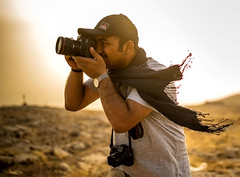
Younes Mohammad Born in 1972 in Dohuk, Iraq. He’s a Kurdish freelance photographer mostly active on assignments for newspapers, magazines etc. He spent his life in Iran as a refugee 1974 - 1998, and graduated in MBA University of Tehran. Photography was his passion but he had no chance to follow it while war situation was still continuing Under Saddam’s time. In 2011, he quit his jobs and started his journey as a photographer. His work has been exhibited internationally and published widely in publications.
Younes has received numerous awards including Mifa, Days Japan and is now based in Erbil, Iraq.
You can see his work here: